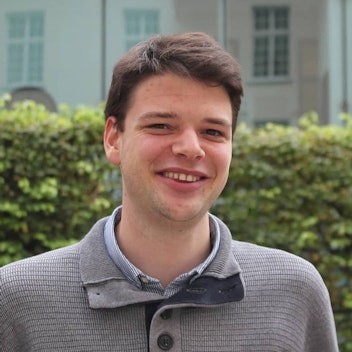
The 17th of all EU-r rights: property and how the Charter contributes
 Gabriel Toggenburg
Gabriel Toggenburg
What was a Catalan researcher who lived in Scotland for a decade and had recently moved back to Barcelona doing in Bolzano/Bozen in 2021, I hear you asking? Well, as the proud recipient of that year’s Eurac Research Federal Scholar in Residence Award, I was presenting a work in progress on State Nationalism and Territorial Accommodation in Spain and India which I had co-authored with the great federal scholar Wilfried Swenden.
When we think about nationalism, we often think about secessionist movements. But nationalism is also a vital part of democratic state functioning. State nationalism tells us what and who the state represents and what it is for. It demarcates a sovereign ‘people’ sharing bonds of comradeship and a state making political decisions ‘in the name of the nation’.
Anyway, I was becoming increasingly interested in state perspectives of territorial dynamics, having focused on sub-state activism in the past. I was especially interested in the role of ideology and wanted to explore whether different ideas around nation and state make state-wide parties open or resistant to demands for territorial accommodation.
Wilfried and I examined this question through an unusual comparison. We wanted to go beyond the ‘holy trinity’ of the UK, Spain and Canada’s cases and even beyond the other ‘usual suspects’ such as France, Italy and Germany. So, we compared Spain with India. To be sure, both countries are very different in terms of size and population, but they do share commonalities in terms of state nationalism and territorial diversity.
In the paper, we compared two key moments or critical junctures for both India and Spain. The first was their ‘founding moment’ as democratic states through constitution-making. We contrasted the predominantly integrationist Indian constitution whereby politicians can’t voice support for self-determination and the federation is mostly centralized with the half-integrationist, half-composite Spanish constitution in which sovereignty is vested in a single Spanish nation and Spanish is the only official language across the state, but there are references to ‘nationalities and regions’ and provisions for an open-ended model of decentralization.
The second moment we looked at was that of the break-down of constitutional consensus. In India, the cause was the rise of the BJP’s dominant and religious nationalism which is turning India into a Hindu-first ethnic democracy and which is engaging in political and fiscal centralization. In Spain, symmetrization eroded the territorial consensus and the recent rise (and fall) of the Catalan quest for independence has hardened state-wide parties’ territorial positions, especially those of the right-wing.
Our main conclusion: the degree of ideological openness is relevant in explaining positions on territorial accommodation. Varieties of state nationalism demarcate the limits within which parties may accommodate territorial demands. Ideology is quite static (parties try to stay ideologically congruent over time), but there are limited temporal shifts prompted by changes in party competition.
I benefited from extremely insightful suggestions and comments from colleagues at Eurac Research, and it was also a pleasure to present our work in progress at the University of Trento.
But I wasn’t only there for work. I enjoyed the meetings and chats with the researchers at Eurac Research over delicious macchiatones immensely. Thanks to our conversations, I developed a strong interest in constitutional federalism and the role of constitutional courts in federal states, themes that I am currently examining as part of my Beatriu de Pinós research project.
Beyond the abundant consumption of macchiatones and pasta, highlights of my stay included visits to Eppan an der Weinstraße/Appiano sulla Strada del Vino, to Klausen/Chiusa, and to many other places in South Tyrol. Last but certainly not least, I was taken to see a hockey match of the Bolzano Foxes. It was a great experience, but unfortunately the Foxes suffered a severe and unexpected defeat. Facing accusations that I had brought bad luck, I insisted that the correlation was not causation.
All these great experiences made me even more fond of Eurac Research and Bolzano/Bozen. My ties with the institution and the city go as far back as 2015, when I was a PhD student and attended the Eurac Research Summer School, to which I was lucky to return as a lecturer in 2019. The Federal Scholar in Residence Award gave me yet another opportunity to deepen my knowledge in all things federal.

This content is licensed under a Creative Commons Attribution 4.0 International license except for third-party materials or where otherwise noted.

 Gabriel Toggenburg
Gabriel Toggenburg
 Maxime Vandenberghe
Maxime Vandenberghe
 Arianna Piacentini
Arianna Piacentini